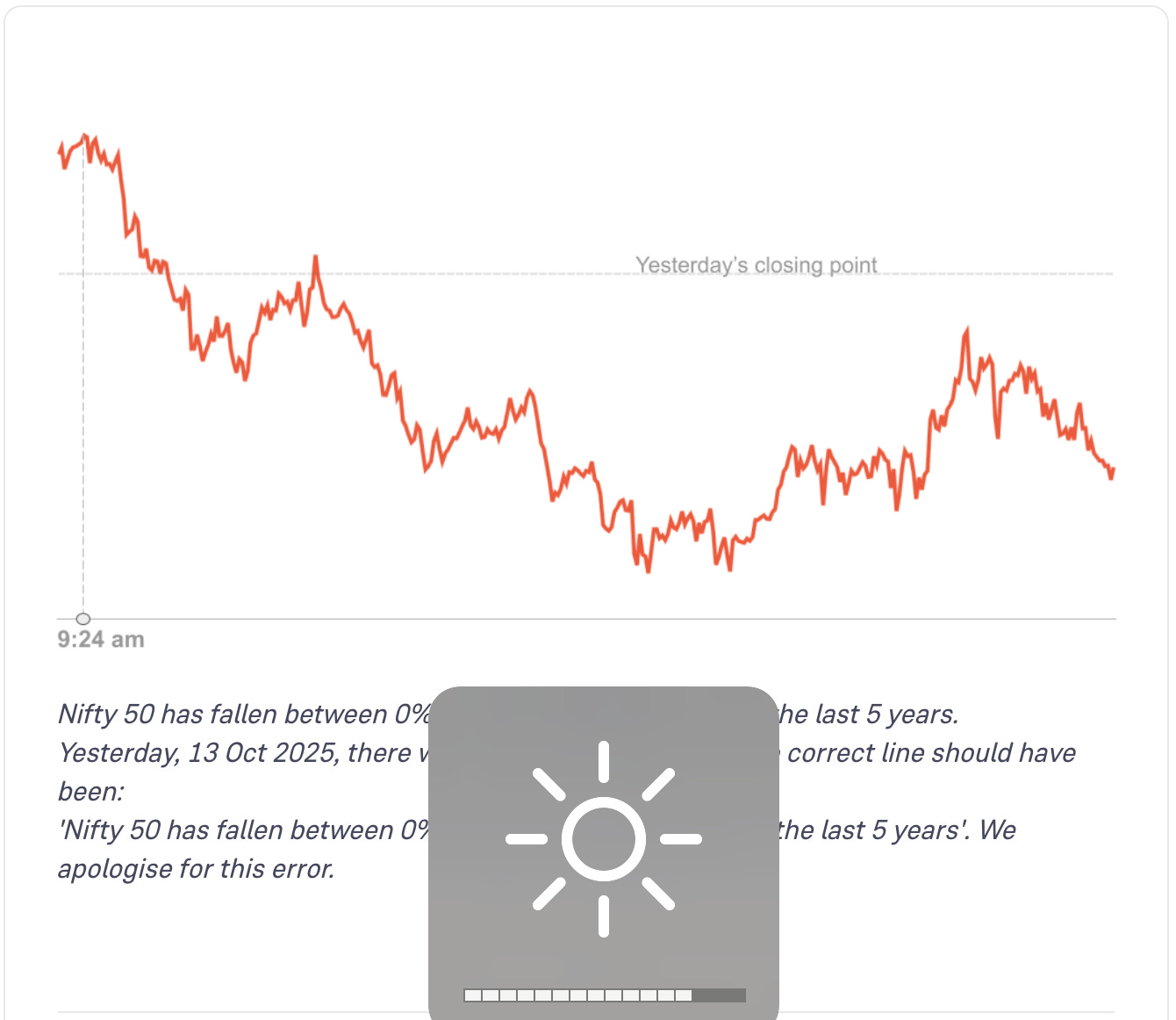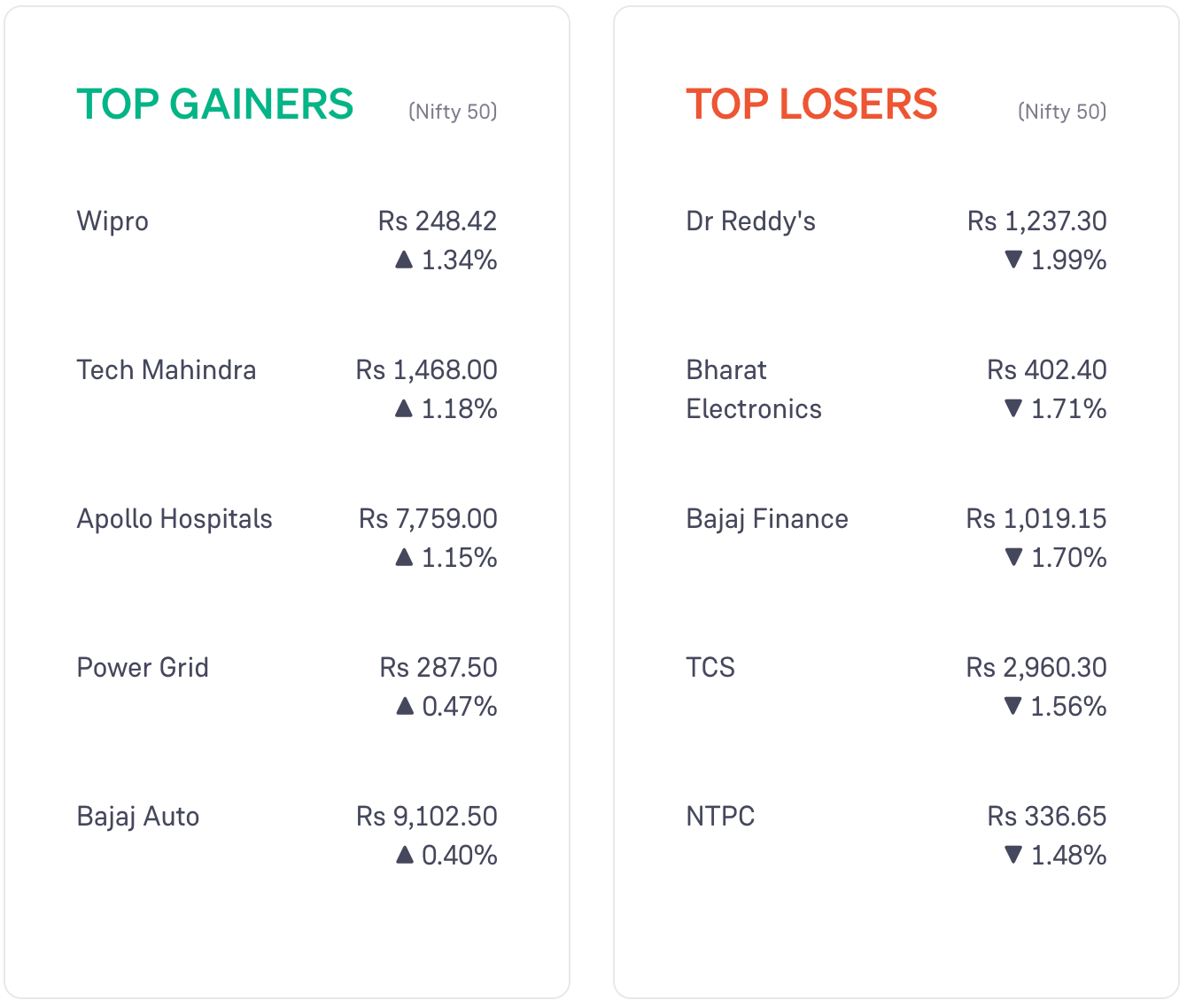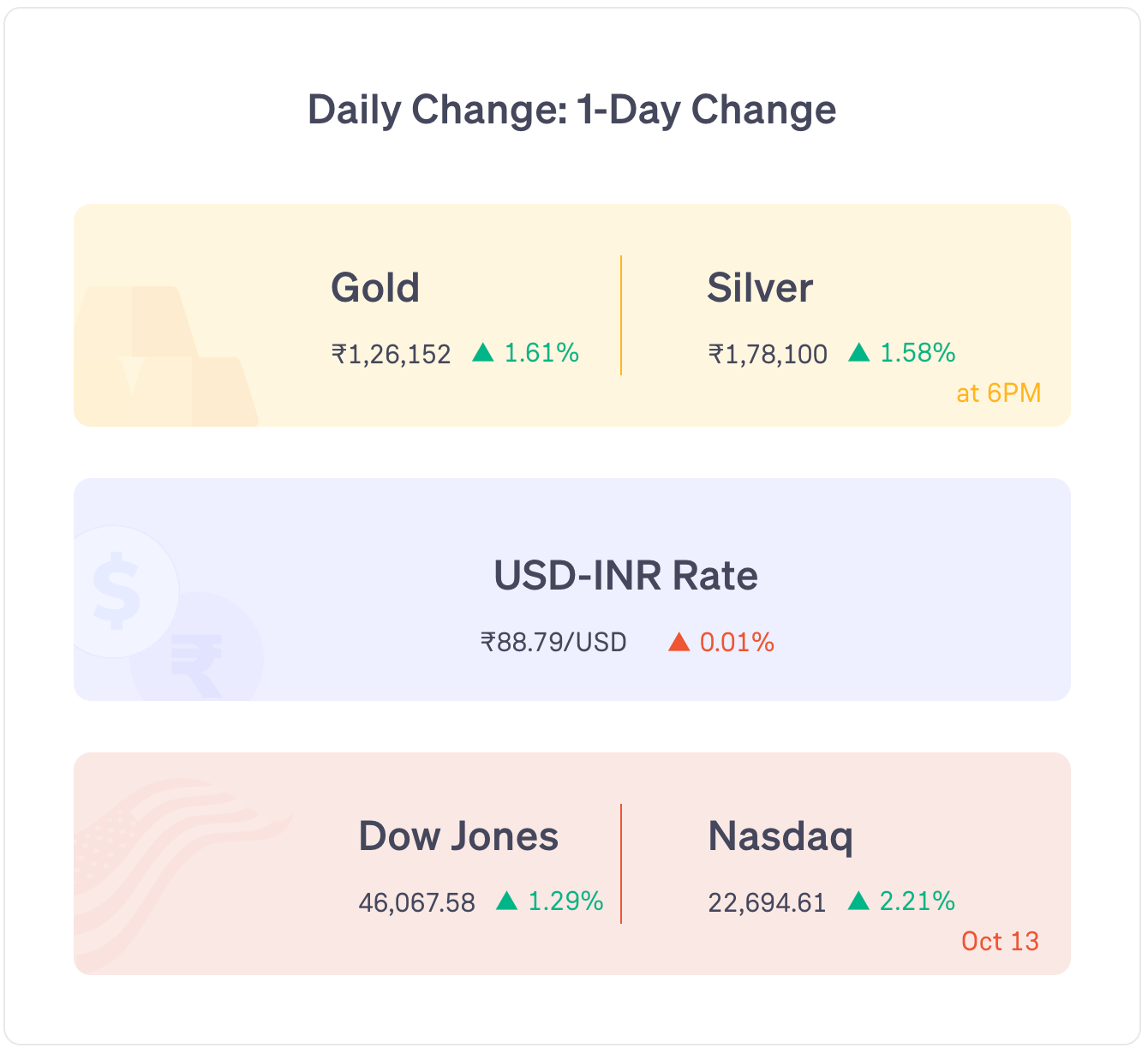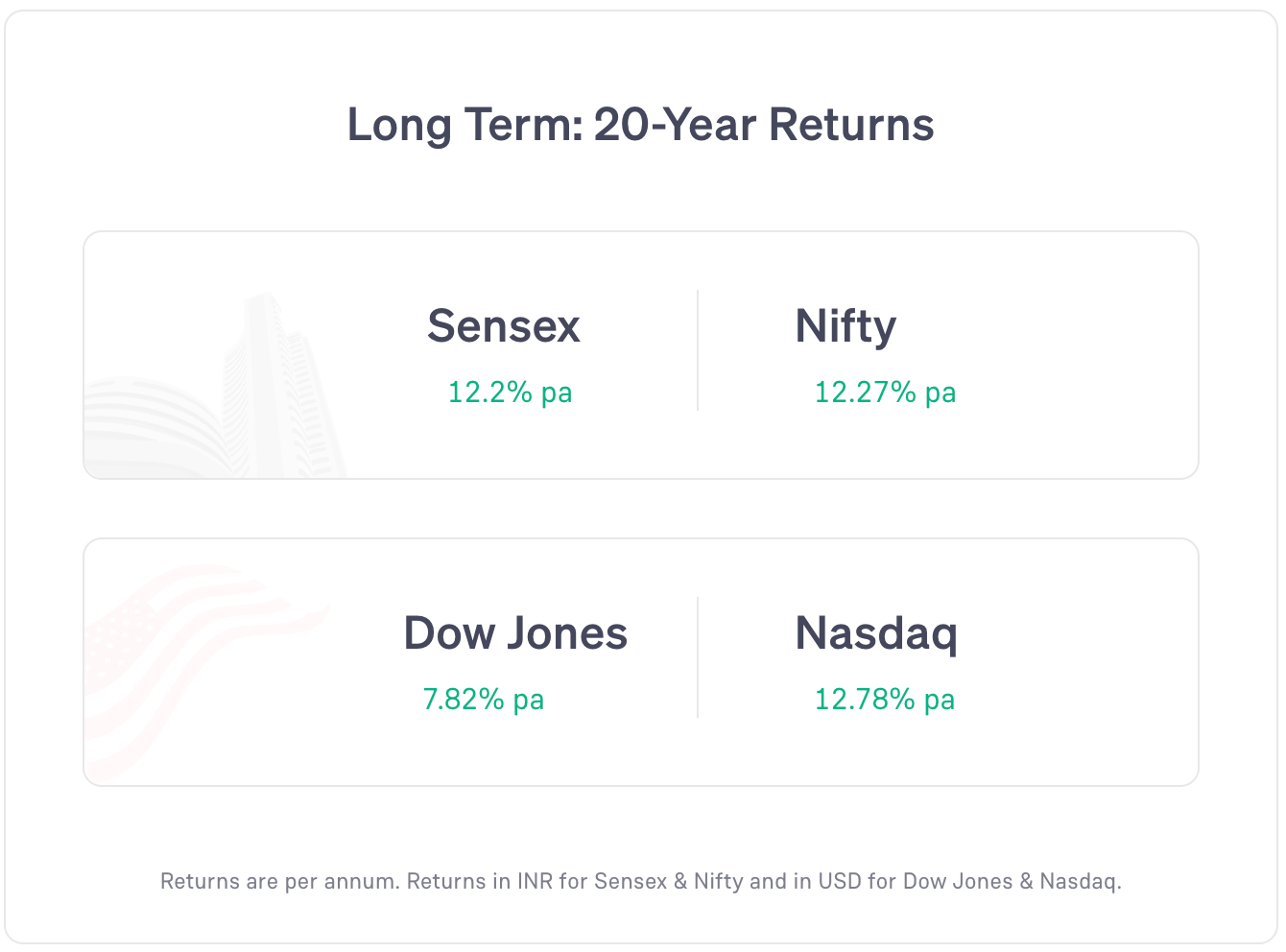LG Electronics IPO's 50% listing gain, Airtel partners with Google, & more - Groww Digest
Tuesday, 14 October 2025
Markets opened above yesterday’s closing point.
Nifty 50 fell in the first half of the day and closed in the red. The fall may have been driven by weak global sentiments due to the latest US-China trade tensions.
All sectors’ stocks fell today. PSU bank stocks and consumer durables stocks fell the most.
Global markets: US markets rose. Most Asian markets and European markets fell (as of 6 pm IST).
News
India’s wholesale inflation fell to 0.13% year-on-year in Sept (vs 0.52% in Aug).
The RBI has allowed Indian banks and their overseas branches to lend to residents of Bhutan, Nepal, and Sri Lanka in Indian Rupees to boost cross-border trade.
LG Electronics IPO listed on the stock exchanges at a premium of 50.01% over the issue price and closed 48.24% up at the end of the day.
Canara HSBC Life Insurance IPO was subscribed 2.29 times. Retail subscription: 0.42 times. IPO is closed for subscription.
Stocks Updates
Infosys: received a 1.2 billion euros, 15-year contract from UK-based NHS Business Services Authority to develop an AI-driven workforce management platform.
ICICI Prudential: net profit rose 18% year-on-year to Rs 296 crore in the July-Sept quarter.
Airtel: partnered with Google to establish an AI hub and data center in Visakhapatnam with an investment of around $15 billion over 5 years (from 2026 to 2030).
Tata Motors: changed its name to ‘Tata Motors Passenger Vehicles Ltd’, effective from 13 Oct, after NCLT and Ministry of Corporate Affairs approval.
Tata Steel: informed that the Orissa High Court has extended interim protection in the Rs 1,902.7 crore Sukinda Chromite Block case till the next hearing.
Lodha Developers: acquired 100% stake in Chaitanya Bilva Pvt Ltd for Rs 499.61 crore, gaining 8.37 acres land in Bengaluru to expand its real estate portfolio.
Word of the Day
Priority Sector Lending (PSL)
It is a rule in India that requires banks to lend a certain portion of their money to specific sectors
RBI has mandated this rule to provide money to sectors that are important for economic development, but may not easily get loans.
This is because these sectors can be seen as risky or less profitable compared to large, established businesses.
Example: agriculture, small businesses, education, renewable energy, social infrastructure, etc.
The PSL targets are different for different types of banks.
For example: domestic commercial banks and foreign banks with 20 or more branches have a target of 40% Adjusted Net Bank Credit (ANBC) to the priority sector.
6 Day Course
Theme: importance of timing in mutual funds
Day 2: Tuesday
Many investors worry about NAV cut off timing. They try to get the earliest possible NAV for their investments.
Does this really matter? In the case of most mutual fund types, it does not matter that much.
In the case of debt funds, the value gain is extremely small over 1 day. So investing any time in the day (before or after the cut off point) does not result in a big difference.
In case of equity mutual funds, the value can change more sharply over 1 day too.
But then, because of volatility, it might go up or down — nobody knows.
So yet again, trying to invest based on the cut off time is usually not a good idea.
Mutual funds are more suited for long term investment. This fact is even more true in case of equity mutual funds.
If an investor wants to time the investment based on a specific short-term event, it is usually better to invest in ETFs or in stocks directly.
Features Question
Q. “As different companies are listed on different exchanges NSE/BSE and sometimes have different (might be little) gain and loss on them so should we check before investing where it’s listed?”
IPO listed at discount: means after the share listed on the exchanges, the share price was lower than IPO issue price.In case of most major companies, the shares are available on both the exchanges.
The price on both exchanges can be slightly different.
But, the difference is mostly very small. It also keeps changing rapidly.
Sometimes, the price on one exchange may be higher and then the very next second, the price on the other exchange may be higher.
This makes it impractical to try and catch the better price.
Hence, in most cases, an investor can buy/sell from any exchange.
The price difference in both exchanges is extremely minor because whenever the price difference increases, arbitrage traders buy from the cheaper exchange and sell on the more expensive exchange.
This causes the price difference to narrow down.
Did you like this edition?
Leave a feedback here!





